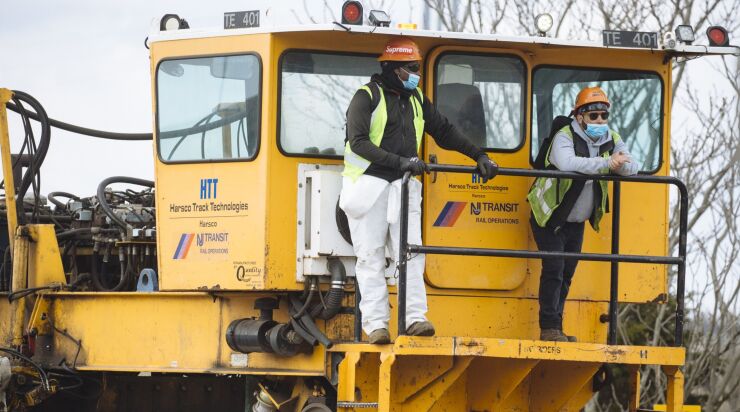New Jersey Gov. Phil Murphy wants to pursue general obligation bonds to finance New Jersey Transit’s capital funding needs, but state lawmakers would first have to pass a proposal that would authorize billions in new debt for the state.
Murphy said he hopes a borrowing proposal that

The
S&P Global Ratings credit analyst David Hitchcock said it is unknown whether New Jersey could issue GO bonds from the emergency bonding legislation for NJ Transit capital needs. The proposed measure would grant special borrowing powers enabling bonding for the purposes of sustaining state operating costs that are normally constitutionally forbidden, except in major emergencies.
“It’s an open question as to what constitutes an emergency expense," Hitchcock said. “It is a legal question and ultimately it will be the lawyers who decide it.”
Bonds for NJ Transit are typically issued by conduit issuers, including the New Jersey Transportation Trust Fund Authority and New Jersey Economic Development Authority. The NJEDA
S&P along with Fitch Ratings rate New Jersey GO debt at A-minus with negative outlooks. The Garden State is also rated A3 by Moody's Investors Service, and A by Kroll Bond Rating Agency. Only Illinois has a worse credit rating in the 50 U.S. states.
Janna Chernetz, the Tri State Transportation Campaign’s senior director of New Jersey policy, said she isn’t sure if bonding for NJ Transit’s capital needs is the proper path. It is more important for New Jersey lawmakers to direct more state aid to NJ Transit and ending past practices of transferring capital spending for operating expenses, she said.
“Borrowing is not going to fix the problem,” Chernetz said. “They don’t have a capital budget problem, they have an operating budget problem.”
The capital plan is highlighted by the goal of elevating the system’s Hoboken rail terminal to protect against flooding. The agency is also looking to repair or replace aging rail bridges along with rolling out multi-level trains and electric buses.
The 10-year strategic plan focuses on goals for expanding capacity on routes into Manhattan with expanded service on the Hudson-Bergen Light Rail line. It also outlines a roadmap for replacing aging vehicles and upgrading 90% of NJ Transit’s information technology systems.
NJ Transit's long-term plans were put in motion before the COVID-19 outbreak in March hammered the agency’s finances due to plummeting ridership. NJ Transit Executive Director Kevin Corbett has estimated fare revenue losses for the 2020 fiscal year, ending June 30, of around $268 million and a $2.6 billion deficit through the end of the 2021 budget cycle.
Corbett
“I think it really helps galvanize businesses, civic groups, environmental groups to get behind to help that advocacy for the funding” said Corbett during Murphy’s COVID-19 media briefing Monday. “We have to live with a certain financial reality, but I think when you see what it takes to be a first-class system, this is what it's going to take over a period of time."





